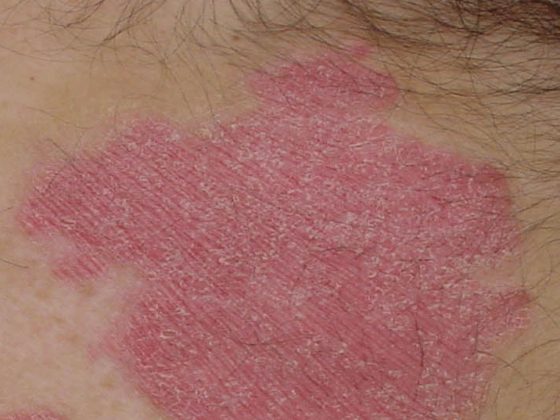In this interview, Oliver Ph. Kreyden, MD, Muttenz, Switzerland, talks about intrinsic and extrinsic skin aging and the many therapeutic approaches that can be used to address such changes. Basically, botulinum, hyaluronic acid and laser are well effective. They can be supplemented with medium to deep chemical peeling, which shows very good results.
Dr. Kreyden, there is intrinsic and extrinsic skin aging. How do you differentiate the two forms purely externally?
Dr. Kreyden:
The two expressions refer to the causes of skin aging. The intrinsic form is genetic: there are people who age faster and others who age slower. External signs are the increasing elasticity, thinning and increased vulnerability of the skin. In addition, the vessels become more fragile and there is frequent bleeding. Even if you bump weakly, there can be a bruise on the skin.
Extrinsic skin aging is predominantly due to photoaging caused by UV radiation. Other factors include nicotine, alcohol, sleep patterns and diet. They all inhibit collagen synthesis and in turn activate metalloproteinases with degradation of matrix proteins and promotion of elastin production.
Exposure to sunlight too often results in the typical “leathery skin”. Hyper- (lentigines solares) and hypopigmentation (hypomelanosis guttata idiopathica), depigmented macules especially on the lower extremities, are also possible consequences.
Tobacco use can lead to the so-called facies nicotinica, the skin becomes gray-blue, slightly mound-like and thickened.
On the frequency and distribution of the two species. If I meet someone on the street who has prematurely severely aged skin: Which is more likely, that he had it in his genes or that he is responsible for it himself?
This is an interesting question, but it is not entirely clear to answer, since the two forms merge. Interestingly, there is a socioeconomic gradient in skin aging: In less developed countries you find a higher number of intrinsic forms than in developed countries. Likewise, there are north/south differences: In the north, for example in Norway, people age less quickly than in the south. Thus, genetic regional differences are decisive here.
Such observations can also be made in extrinsic skin aging. Certain professions, such as construction workers, are naturally exposed to the sun more often. Therefore, the skin ages faster.
Can the intrinsic form of skin aging be addressed or treated efficiently at all? If so, what methods are available for smoothing mimic and static wrinkles?
In principle, we are still powerless against genes. It is difficult to influence intrinsic skin aging. Protectively, we can’t do much here. Only by taking corrective action early on is some kind of prevention possible. Aesthetic dermatology with its four main pillars botulinum, hyaluronic acid, laser and peeling offers good possibilities here. While laser and hyaluronic acid are mainly used to correct static wrinkles, botulinum is effective against mimic wrinkles caused by strong activity of the muscles under the skin.
In this context, botulinum is no longer used only for corrective purposes. Aesthetic dermatology has learned that botulinum can be used preventively to achieve better long-term results. We treat certain groups of patients before the wrinkles appear, so that such signs of skin aging do not appear in the first place.
Does starting treatment as early as possible increase the success of therapy?
Absolutely. Of course, you have to decide on a case-by-case basis who to treat and how, but we are moving more and more towards preventive treatment, especially with botulinum. Such an approach can already be evaluated in a 20-year-old who has very hypertonic musculature in the interocular region.
Various environmental influences contribute to extrinsic skin aging: UV exposure, diet, nicotine as well as alcohol. Can therapeutic success already be achieved by prescribing lifestyle measures?
Of course, the triggering factors should be avoided as much as possible. The cosmetics industry has understood this, so practically every day cream nowadays contains a sun protection factor. Nevertheless, the patient must also be informed that skin aging naturally does not stop when he or she stops smoking, for example. In this case, the lifestyle measures must be weighted correctly and integrated into the overall therapy concept.
A variety of therapeutic measures are currently available: from lasers, fillers and botulinum to peeling. My personal favorite is the medium to deep chemical peel as it provides excellent results.
Do people whose skin has undergone severe extrinsic aging have an increased risk of actinic skin damage such as actinic keratoses or spinaliomas?
Yes, clearly these two factors correlate: the more extrinsic skin damage present, the higher the risk of developing spinalioma. This could be proven. It is known that UV radiation damages keratinocytes and fibroblasts at the molecular level and initiates signal transduction leading to breakdown of the extracellular matrix and silencing of collagen synthesis. In addition, false daughter cells increasingly appear, which can develop into cancer.
Interview: Andreas Grossmann
DERMATOLOGIE PRAXIS 2013; 23(6): 12-13











